Learning new languages has become easier today as there are many online options that you can use according to your abilities. Among these options, there are Rosetta Stone and Babbel which are two of the most well-known ones. Here, we will discuss Rosetta Stone vs Babbel to help you choose the one that best fit with you.
Rosetta Stone vs Babbel: Features, Methods, And Pricing
Languages and Proficiency Levels
Rosetta Stone provides more than 30 languages, including Spanish, French, German, Italian, Mandarin Chinese, Hindi, Persian, and Swahili. This application is great for beginner to advanced levels. The main focus is on building a strong base in a language.
Babbel, in turn, provides 14 languages: Spanish, French, German, Italian, Portuguese, Russian, Polish, Indonesian, and some others. There is no course for beginners only: Babbel’s materials are suitable for all levels.
In addition, both systems keep adding new languages. Another important thing is that each platform provides placement tests.
User Experience and Interface
Rosetta Stone has an intuitive interface. Simplicity and immersion are two features that characterize Rosetta Stone’s style. You learn everything through associations: no translation or grammatical explanations. Most lessons on the Rosetta Stone are visual and audio cues. It provides an application for iOS and Android, which is very handy. This platform is equally simple and convenient for desktop and mobile devices. In addition to that, you will have the opportunity to track your progress and review vocabulary.
In its turn, Babbel relies on a more structured, textual explanation. Its lessons are short and focused primarily on one area, a conversation topic, or a grammar rule. In addition, you receive visual support in the form of illustrations and audio and text explanations. In general, the Babbel interface is also intuitive and easy to use. Babbel offer an app for both for iOS and Android users. The experience it offers is great across all devices.
Approaches and Methods
Rosetta Stone uses an immersion method like the one we use to learn our first language or mother tongue. This method focuses on vocabulary and grammar, with practice through interactive exercises, images, and pronunciation recognition. Its main purpose is to teach word and picture association without translations. Another important feature is that, according to Rosetta Stone, the method allows achieving a natural understanding of a foreign language rather than a theoretical one. You can also try your phone conversation skills here, for example, when ordering food or booking a night at a hotel to practice language skills practically.
Babbel’s focus is slightly different as it focuses on practicing useful conversations. Its lessons cover everyday topics such as greetings, travel, and shopping. Babbel adds voice and texts to explain these practical topics and translates single words or phrases.
Pricing and Subscription Options
Rosetta Stone offers one-year subscriptions in a variable number of languages. A 12-month plan for a single language costs $199, and the provider’s “Unlimited Languages” one-year plan is $299.
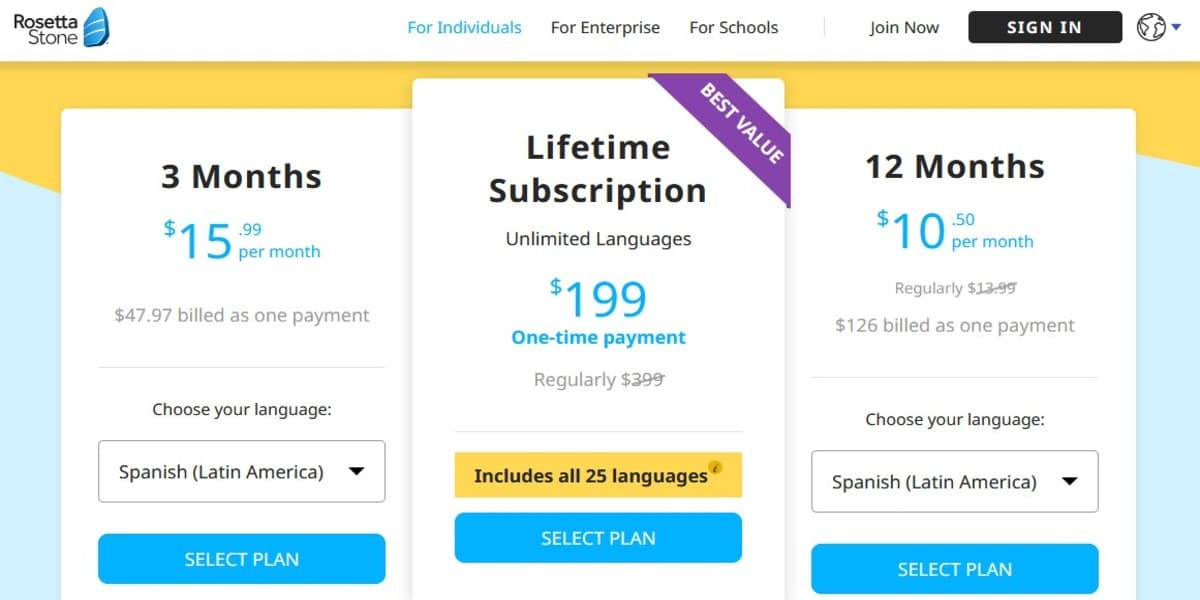
Babbel supports a much wider variety of pricing options. At the time of writing, the monthly rate stands at $12.95, which is slightly lower than Rosetta Stone’s. With a 12-month plan, the price falls to $6.95/month. At the same time, purchasing a “Babbel Family” plan for up to five users is possible.
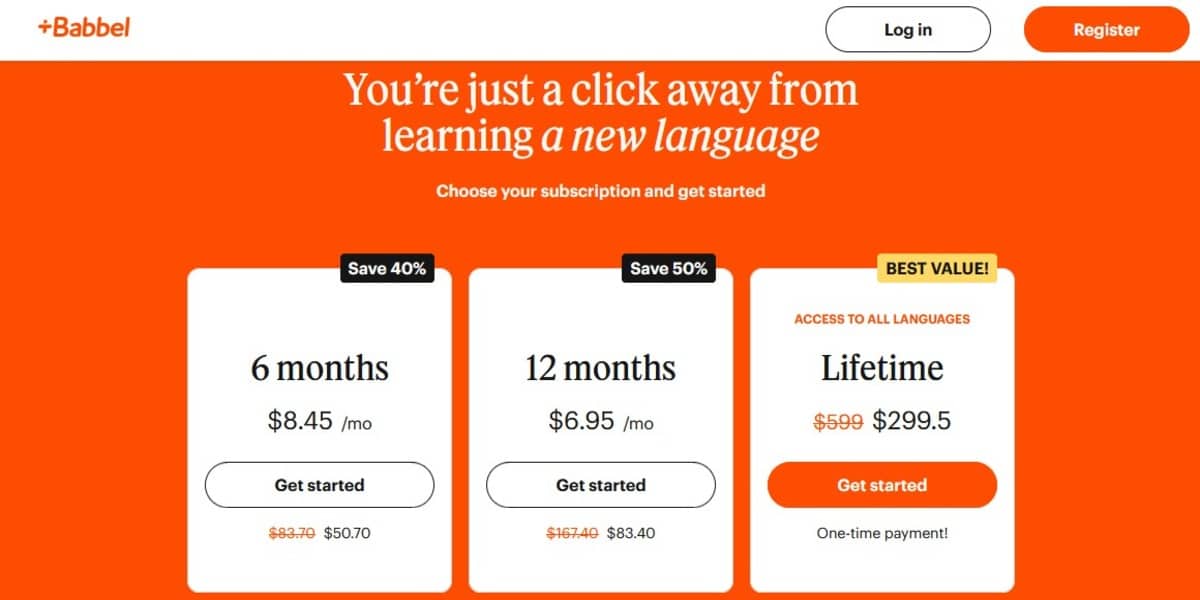
Both providers offer free trials, but Rosetta Stone is generally a better solution for a single-language learner. At the same time, Babbel’s subscription is cheaper and more diverse, and it should be considered for users interested in learning multiple languages or seeking a more affordable purchase.
Additional Features and Resources
Both platforms enhance their programs with some additional features and resources. Babbel’s program offers a strong particularized focus, enabling users to grasp the specifics of how different languages use grammar and vocabulary. In addition, its forum allows learners to communicate with other users and instructors, ask questions, and share their experiences. Its app can also adjust both the overall rate of progress and the focus of learning.
Meanwhile, Rosetta Stone French Program has a better “stand-out feature” regarding users’ capacity for conversation with native speakers. In addition, the platform offers several additional games, stories, and podcasts, as well as a possibility to study offline.
Babbel vs Rosetta Stone: Pros and Cons
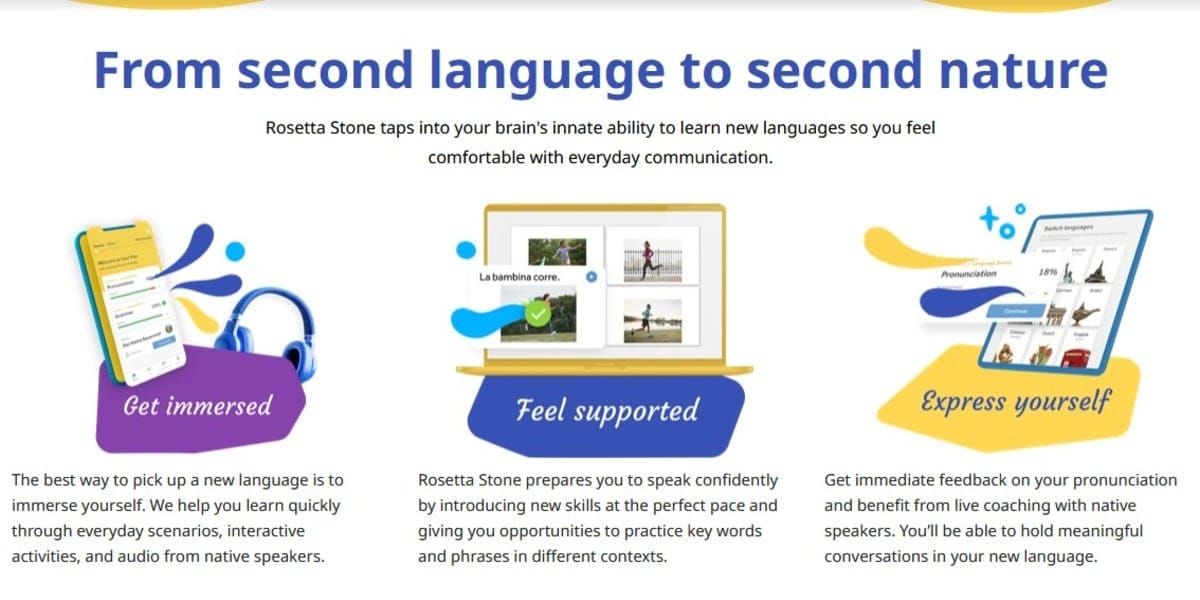
Pros of Rosetta Stone:
- Immersive teaching approach that replicates natural language learning.
- Comprehensive language options, including less commonly taught languages.
- Intuitive and user-friendly interface, with a consistent experience across devices.
- Effective voice recognition technology to help improve pronunciation.
- Supplementary materials like interactive games and stories to reinforce learning.
Cons of Rosetta Stone:
- Lack of explicit grammar explanations and translations, which some learners may prefer.
- Higher subscription costs compared to Babbel.
- Limited focus on practical conversation skills and real-world scenarios.
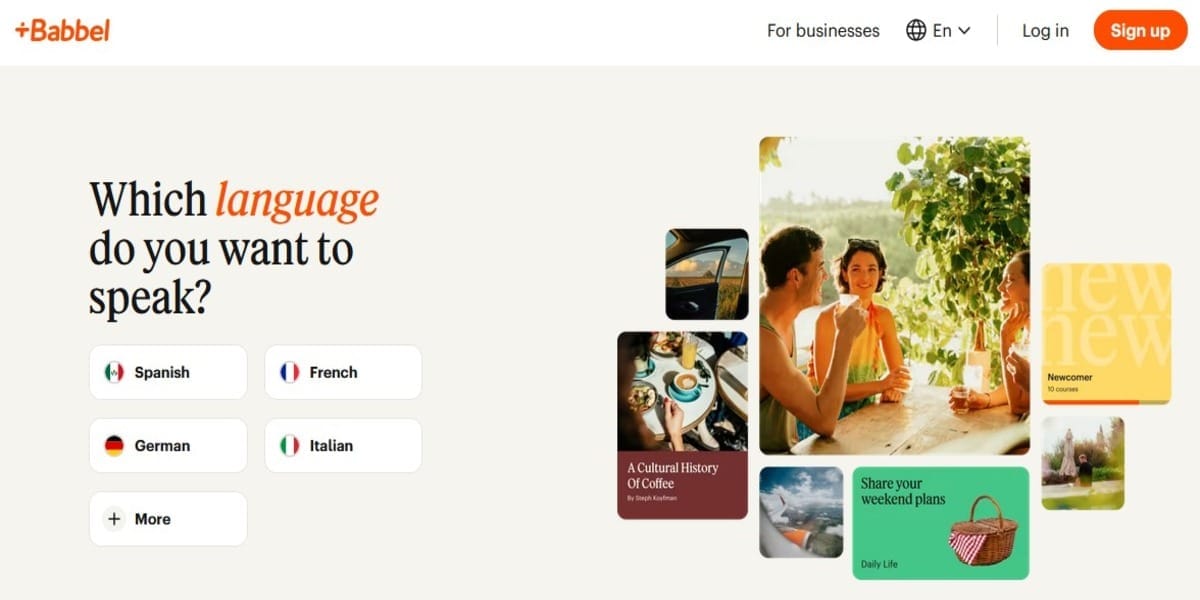
Pros of Babbel:
- Practical and conversation-focused approach, with lessons on relevant everyday topics.
- Affordable and flexible subscription options, including a family plan.
- Short and engaging lessons that are easy to fit into busy schedules.
- Comprehensive learning resources, including grammar explanations and vocabulary lists.
- Access to a supportive community forum for language learners.
Cons of Babbel:
- Slightly more limited language options compared to Rosetta Stone.
- Less immersive and intuitive user interface, with a more structured and text-based approach.
- May not be as effective for learners who prefer a more intuitive and natural language learning process.
Rosetta Stone vs Babbel: Which One To Choose
Rosetta Stone and Babbel are two fairly successful language-learning solutions with positive user reviews. Users appreciate the former for its immersive process, which enables them to learn vocabulary and grammar quickly. Meanwhile, Babbel’s solution is more affordable, and its low-key, short, and practical lessons have more direct applicability to users’ lives and needs. Tastes and needs can certainly differ among different user demographics, so using free trials of both products is highly recommended to see which works best for you.
Finally, if you own a business and need SEO assistance, Outreach Bee is ready to step in. Contact us or leave us a message on Facebook or LinkedIn.

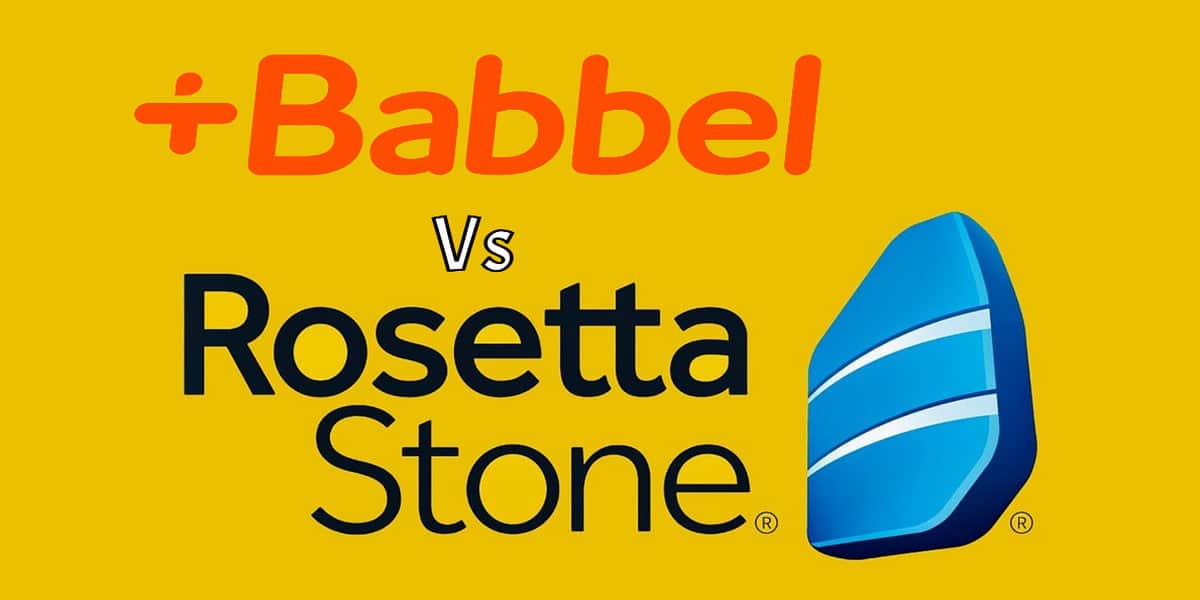

SDK vs. API: The Key Difference Explained with Examples
Simple Tips to Protect Your WiFi Network From Hackers